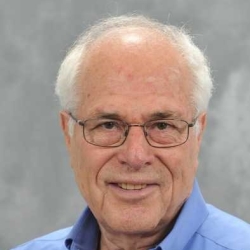2024 Recipients

2024 Recipient
IZelig Eshhar received his his B.Sc. in Biochemistry from the Hebrew University in Jerusalem in 1966. In 1968 he received his M.Sc. in Biochemistry and in 1973 he got his Ph.D. from the Weizmann Institute in Chemical Immunology.
He did his Post-Doctoral Felloship at Harvard Medical School in the Dept. of Cellular Immunology led by Prof. Baruch Benasraf (who later won the Nobel Prize), in David Katz's lab.
On his way back to Israel, he joined Prof. Keller's lab at the Immunology Institute of Basel where he learned the method of creating monoclonal antibodies.
In 1976, he returned to Israel and joined the academic staff at the Weizmann Institute as the head of a research group in the Chemical Immunology department.
In 1982, he was awarded professorship and went to California for a sabbatical at the DNAX Institute for Molecular Biology. In 1984, upon his return to the Weizmann Institute, he began to focus on the topic of genetic engineering of T-cells. During those years, Eshhar also worked to create unique antibodies specifically for allergies and cancer cell antigens.
In 1990, he took a sabbatical in the National Institute of Cancer in Maryland, in the lab of Prof. Steven Rosenberg. It is there that he set the groundwork for the clinical application of the T- Bodies technology, an anti-cancer approach which he developed at the Weizmann Institute (Car-T).
Throughout his academic career he organized numerous international courses teaching the monoclonal technique and immunology. Prof. Eshhar was invited to teach in developing countries and has advised many biotech companies. In 2011, he retired from the Weizmann Institute as Prof. Emeritus. His next step was to open the Lab for Immunology Research at the Tel Aviv Sourasky Medical Center. In 2012 he became a guest Professor in the Faculty of Medicine at the Tel Aviv University.
Zelig Eshhar
